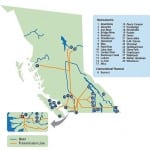A carbon tax or cap-and-trade programs could raise trillions of dollars within the first 10 years of their enactment and avert climate change effects, but without accounting for how these revenues will be used, they could take a toll on the U.S. economy, the Congressional Budget Office (CBO) says in a report released on Tuesday.
The report prepared at the request of Rep. Henry Waxman (D-Calif.), who is the ranking member of the House Committee on Energy and Commerce, was released as lawmakers in Congress have proposed bills that would directly tax carbon dioxide emissions from large sources. Though no federal estimates had been put forth as to how much revenue a carbon tax might produce, analyses of policies to cap and trade carbon dioxide emissions from most fossil fuel consumed in the U.S. suggest they could "generate a substantial amount of revenue," the CBO says. A 2011 estimate from the CBO that sets a price of $20/ton of CO2, with an annual price increase of 5.6%, for example, suggests a total of nearly $1.2 trillion could be raised during its first decade. Carbon emissions, meanwhile, would drop about 8% over that period.
The federal body that provides economic data to Congress identifies various issues associated with implementing a carbon tax, but it suggests that lawmakers should view a carbon tax "as a reflection of society’s willingness to pay to reduce the risk of potentially very expensive damage in the future."
The CBO found, however, that a carbon tax would tend to increase the cost of producing goods and services—especially electricity and transportation. "Those cost increases would provide an incentive for companies to manufacture their products in ways that resulted in fewer CO2 emissions. Higher production costs would also lead to higher prices for emission-intensive goods and services, which would encourage households to use less of them and more of other goods and services," it said, however.
The CBO assessed a number of ways revenues from a carbon tax could be used, including to reduce budget deficits, to decrease existing marginal tax rates (the rates on an additional dollar of income), or to offset the costs that a carbon tax would impose on certain groups of people. "Without accounting for how the revenues from a carbon tax would be used, such a tax would have a negative effect on the economy," the report says.
"The higher prices it caused would diminish the purchasing power of people’s earnings, effectively reducing their real (inflation-adjusted) wages. Lower real wages would have the net effect of reducing the amount that people worked, thus decreasing the overall supply of labor. Investment would also decline, further reducing the economy’s total output."
If revenues from a carbon tax were used to reduce budget deficits or if they were used to cut marginal tax rates, they could decrease total costs to the economy, the CBO concludes.
Sources: POWERnews, CBO








